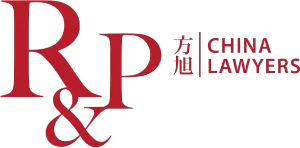As the China business tax transition to value-added tax reforms are fully implemented beginning 1 May 2016, Premier Li Keqiang made the rounds in Beijing last week to drum up support among regional officials. Business tax has been a steady source of revenue for local governments for many years, and the switch to VAT means more control over tax matters from the central government, as well as potentially less tax revenue to local governments. With local officials already under pressure from ballooning debts, a slowing economy, and of course the widely reported "corruption crackdown", these new regulations are sure to twist the knife even further.
For foreign investors in China the picture is rosier, as these tax changes bring both bottom-line benefits and greater consistency to their operations. Business tax is in many ways an outmoded sales tax, and the transition to value added tax over the past few years has been declared a success not only by the Chinese government, but also by the international / multinational community at large. The VAT transition reforms were initially scheduled to complete in 2015, and notwithstanding the slight delay, will now become fully effective. The new tax rates and other important considerations are summarized below:
Industries Affected & New Tax Rates
All remaining 5% business tax industries will convert to differing VAT rates beginning in May. The majority of these business tax payers will convert to the standard 6% VAT rate for services (or 3% for small-scale taxpayers).
Included in the transition to the 6% VAT rate are the finance industry, as well as "life services", a vague industry category that includes F&B, travel, education, etc. Notably, both the construction and real estate sectors will transition to the higher 11% VAT rate which already includes transportation, postal, and basic telecommunications services.
| Industry | Original Business Tax Rates | New VAT Rate |
| Financial Services | 5% standard BT | 6% VAT (3% for small-scale taxpayers) |
| Life Services | Dependent on sub-industrial category. In some cases up to 20% BT | 6% VAT (3% for small-scale taxpayers) |
| Construction | 5% standard BT | 11% VAT |
| Real Estate Services | 5% standard BT | 11% VAT |
Temporary VAT Exemption for Promoted Services
Included as a supplementary measure to the reforms, certain services will enjoy a VAT exemption period to further encourage growth. Foreign investors in these sectors will see their tax burden significantly reduced. Promoted services include nurseries and day-cares, medical services, education services, elderly services, and many more. The tax relief for these service sectors is part of the central government's overall push towards a greener and more service-oriented economy, as highlighted in the recent five-year plan.
Closing Remarks
May 2016 signals the end of the four year "business tax to VAT" pilot program, which began in 2012. Full implementation brings with it both challenges and opportunities for foreign investors in many sectors. Certain industry sectors will struggle with higher tax rates, while others will benefit from the VAT input mechanisms and greater consistency in their operations. The VAT reforms will also certainly be a new burden for local governments, and it remains to be seen how they react during the implementation phase.
The content of this article is intended to provide a general guide to the subject matter. Specialist advice should be sought about your specific circumstances.

